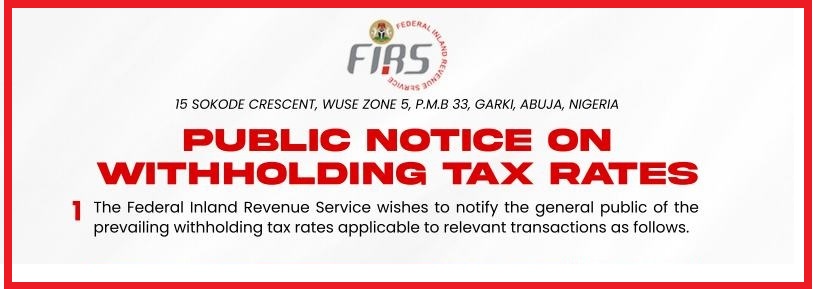A call to action against the Learning Crisis in Nigeria has been echoed, as the Federal Ministry of Education, Universal Basic Education Commission, the Nigeria Governors’ Forum and UNICEF pledge to take decisive measures. The commitment follows the two-day National Conference on the Learning Crisis held on 18 and 19 October in Abuja.
The current educational landscape reveals a daunting reality where merely 1 in 4 Nigerian children aged 7 to 14 can read with comprehension or tackle simple arithmetic. The conference provided a platform for participants to dissect the magnitude of the educational challenge. Various driving factors, including the lack of quality in educational investments, the dire need for enhanced teacher training, and the accessibility to superior textbooks in indigenous languages, were spotlighted.
The conference spotlighted successful educational models such as the Reading and Numeracy Activity (RANA) and TaRL (Teaching at the Right Level). The former has shown remarkable progress in elevating reading skills for Grades 1-3 students in both English and Hausa languages, catering to formal and Integrated Quranic Schools. Meanwhile, the latter has bridged learning gaps in Grades 4-6, adopting a unique approach of categorizing children based on learning capacities rather than conventional grading. Both models have proven effective in diverse humanitarian and developmental settings.
Strong voices from Federal and State officials, international donors, development partners and the private sector culminated in the creation of a ‘Framework of Action.’ The blueprint aspires to elevate the educational quality, especially for students lagging behind, emphasizing the imperative components of quality education. The proposed framework underscores the significance of teacher training, advanced teaching tools, tech-integrated learning, and performance assessments.
While the specifics of the Framework of Action will be detailed in the coming months, here are some of the key takeaways:
- Government and stakeholders, led by the Minister of State for Education, Dr. Tanko Yusuf Sununu, and the Nigeria Governor’s Forum Chairman, Dr. AbdulRazaq AbdulRahman, called for strong political leadership, commitment and collective action to solve the learning crisis. There was consensus that these efforts must begin with increasing domestic financing of quality education and be galvanized through a jointly developed and agreed Framework of Action
- The conference agreed that a review and reform of Nigeria’s curriculum is needed to align with global standards, placing a strong emphasis on practical skills. Alongside this, quality, localized content, must be co-created with key stakeholders using the language of the immediate environment to support early grade learning.
- States were also urged to strengthen and fully implement teacher management policies on recruitment, deployment and remuneration to ensure that there are enough teachers at primary school level. This must include continuous teacher professional development to strengthen content knowledge and teaching practice.
- The Framework of Action will be revised based on the feedback received at the meeting. This will be followed by a validation meeting and development of costed state action plans with clear targets and an annual review to monitor progress.
Minister of State for Education, Dr. Tanko Yusuf Sununu, in his speech on the occasion, noted that in recent years Nigeria has been grappling with a severe learning crisis that hinders youth from achieving their fullest potential, highlighting the consequences if the situation is not addressed.
“The consequences of this learning crisis are far-reaching and profound. We risk widening the already significant education gap, perpetuating a cycle of poverty, illiteracy, diseases and stifling innovation and progress. Therefore, our nation must rise to protect the potential and aspiration of our youth, for they are our greatest asset and hope for a prosperous future,” said the minister.
The Chairman of the Nigeria Governors’ Forum and Executive Governor of Kwara State, Dr. AbdulRazaq AbdulRahman, made a firm commitment: “The Nigeria Governors’ Forum is committed to the provision of inclusive quality education through improved budgetary provision for the educational sector to address the learning crisis in the country. We would consolidate our advocacy in guaranteeing that state governments in Nigeria allocate at least 15-20% of their fiscal budgets to education for subnational development.”
The NGF Chairman was represented by NGF vice-chairman and Governor of Oyo State, Mr Oluseyi Makinde.
“We would consolidate our partnership and collaboration with the federal government, development partners and critical stakeholders in the education sector to address these challenges,” added Governor Makinde.
In her goodwill message, Jana Wooden, Education Director, United State Agency for International Development Agency (USAID) said: “USAID is committed to supporting inclusive foundational learning programmes through collaboration with the Ministry of Education, civil society organization, implementing partners and other donors to meet the needs of children and youth in Nigeria and globally.”
Ms Cristian Munduate, UNICEF Representative in Nigeria, strongly emphasized, “Nigeria must prioritize the learning crisis in its developmental agenda. A united effort, blending political leadership, technical expertise, and local community involvement, is pivotal.” She further added, “The time to zero in on and rededicate to learning is now, especially as the new administration chalks out its focus for the forthcoming five years.”
UNICEF reaffirms its support by collating insights from the conference and facilitating further refinement with stakeholders. A subsequent workshop is planned to validate that the Framework meticulously outlines the roles, duties, and resources essential for its execution.
The Conference was attended by distinguished persons including Nigeria’s Minister of State for Education, Dr. Tanko Sununu; Dr. Mark Useni, House of Representatives’ Committee Chairman on Education; Ian Attfield, Foreign, Commonwealth and Development Office (FCDO) Senior Education Advisor; Dr. Hamid Bobboyi, Executive Secretary of Universal Basic Education Commission, and UNICEF Representative in Nigeria, Ms Cristian Munduate, among other eminent personalities.







